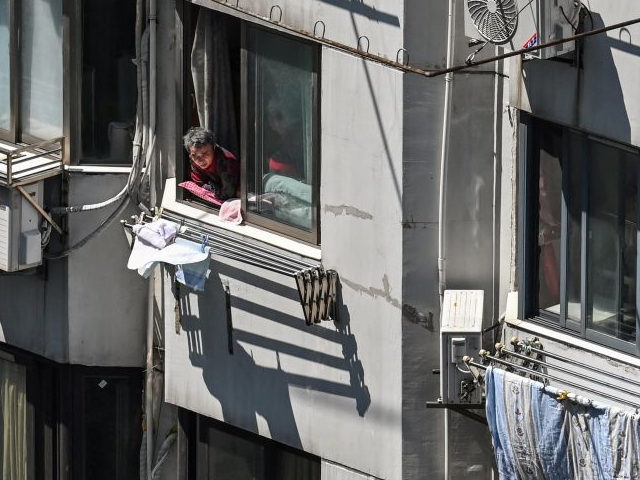Shanghai officials claimed on Friday that the city’s coronavirus outbreak is “under effective control” after a month under harsh lockdown restrictions – but the lockdown will continue.
Meanwhile, the city created some 9,000 permanent coronavirus testing stations in a bid to “normalize” mass testing forever.
“Currently, our city’s epidemic prevention and control situation is steadily improving, and the epidemic has come under effective control,” Shanghai vice major Wu Qing said on Friday.
Wu said the number of infections is on a “continuous downward trend” and claimed community transmission has been “effectively curbed,” but millions of Shanghai residents will remain sealed in their homes, and tight restrictions will be kept in place for at least another month.
“We cannot relax, we cannot slack off. Persistence is victory,” Wu said.
As Reuters reported on Friday, the people of Shanghai have noticed those “persistent” restrictions are not being relaxed in any logical way, and people are discovering their gates are still locked even though they were told they could leave their homes:
Though some 2.3 million Shanghai residents are still in sealed-off high-risk areas, another 16.67 million are in lower-risk “prevention zones”, meaning they can, in theory, leave their homes and roam around their communities.
However, many residents have been complaining that different community officials are applying the rules in different ways, with some people in “prevention zones” still unable to get out even though their area has reported no positive cases for weeks.
One large compound in central Shanghai’s Changning district, announced on Friday that it was relaxing restrictions within the compound and scaling back the number of volunteers helping to deliver food. But its residents could still not get out through its locked gates.
China’s state-run Global Times on Thursday said the Shanghai lockdown would “likely” be lifted by the “end of May.”
Ignoring the cries of Shanghai’s imprisoned population, the Global Times described the lockdown as a “decisive and tough battle against Omicron,” even though it’s far from over by the Communist Party’s own admission, and much of the city is still a prison camp:
For some residents under precaution-level regions where no positive cases have been found for 14 days, one person from a household is allowed to go out to purchase daily necessities within certain areas. In order to avoid large gatherings, some communities strengthened preventive measures.
“Our community only allowed us to move freely within the community and reminded us to avoid gathering,” a 41-year-old Shanghai resident surnamed Jin told the Global Times on Thursday, who is living in a community under precaution status.
“China will surely win the war against COVID-19 [Chinese coronavirus] with its scientific and effective epidemic control policy that will stand the test of time, according to a meeting of the top leadership on Thursday,” the Global Times reported with unintentional hilarity.
While Chinese state media predicted Shanghai would swiftly bounce back after the lockdowns finally come to an end, more thoughtful observers inside and outside the city feared it might be ruined forever – transformed from a vibrant and glamorous financial hub into another dreary concentration camp with skyscrapers. As these critics noted, the Chinese Communist Party is repurposing propaganda slogans from the Xinjiang genocide to ensure public compliance with coronavirus lockdowns, with only very minor changes in wording – from “Round up everyone who should be rounded up” for the Xinjiang brainwashing camps to “Take in all who should be taken in” for the Shanghai quarantine camps.
Further evidence of an enduring change for the worse is that over 9,000 permanent coronavirus testing stations have been established in Shanghai. City officials described the stations as an effort to “normalize” mass coronavirus testing – and authoritarian responses -–as a permanent feature of life.
Other Chinese cities are creating thousands of permanent testing stations as well, along with regulations that constant negative tests are required to access public venues.

COMMENTS
Please let us know if you're having issues with commenting.